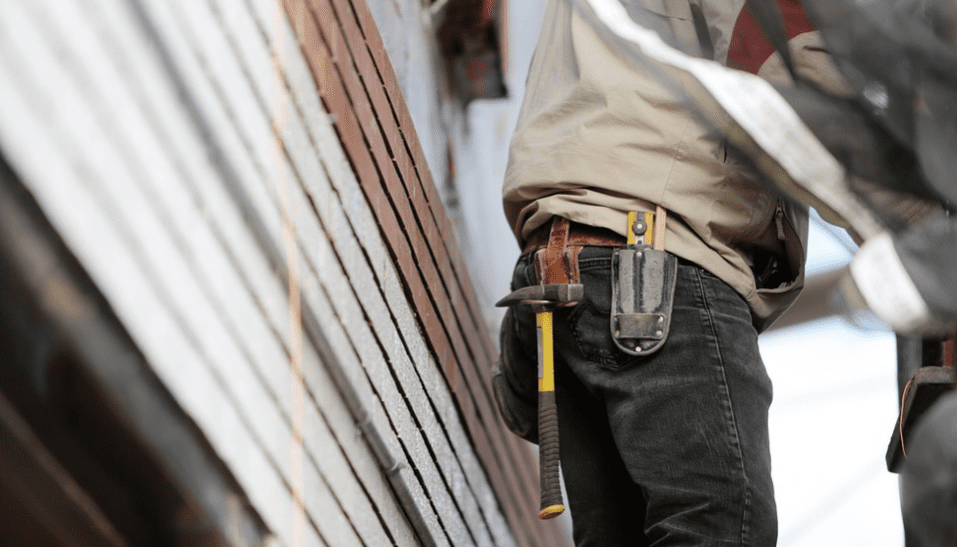Mobile home owners, like any large group of people, come in all kinds of shapes and sizes. No one mobile homeowner description fits every single mobile home resident. The only thing they certainly have in common is that they made a very astute move by choosing a type of accommodation that is both affordable and can provide an amazing standard of living.

So, without further ado, we would like to introduce you to the 5 most common types of mobile homeowners. As a bonus, we also want to show you what the perfect mobile home tenant looks like!
The New Guys
For some reason, the idea of the younger generation making up a significant portion of mobile home inhabitants is an odd one. In most cases, when asked to describe your typical mobile homeowner, you would go for someone a little more advanced in years.
Surprisingly, the age group between 18-29 years old make up the largest group of mobile home residents. 23% percent of mobile home residents come from this group. This is in steep contrast to our perception of all 20-somethings living in apartments, college dorms or trendy up-and-coming neighborhoods. With a hipster coffee shop on every corner.
Why mobile homes?
One might wonder, what drives this group of people who are approaching their prime to live in mobile homes? The easiest answer would be because mobile homes are surprisingly affordable. The U.S. is currently facing a tremendous housing crisis even though it might not seem that way. Fewer people can afford to buy real estate.
As people who are just starting out their lives and trying to establish financial independence, this age group is even under more stress. Tuition fees are higher than ever resulting in larger loans to pay off.
Mobile homes ($600 for the home and the lot) cost around half of what the average apartment does ($1200+) to rent. Furthermore, there are no property taxes if you rent a lot in a park. The maintenance is also cheaper in the long run.
Challenges
- Depreciation of value in a mobile home over time doesn’t make it the best investment for the future.
- Mobile home parks are often located outside of city limits where colleges and most job opportunities are.
Opportunities
- Saving 50% on what would normally be your accommodation allows to pay down study loans sooner.
- America has a huge saving problem, and by cutting costs early on in life, we might start to remedy this with the next generation.
The Retiree
Mobile homes have become a popular option among those in and nearing the age of retirement. After young adults and baby boomers, they make up the 3rd largest group of mobile home residents. This has given rise to plenty of mobile home parks that have a minimum age restriction.
At this age, people have earned a right to a comfortable and dignified way of life at a fair price which is exactly what mobile homes offer. You can read more about these communities in our article here.
Why mobile homes?
When it comes to why mobile homes are a good investment for seniors or near-retirees, the list is almost endless. Mobile homes are generally located outside of busy city limits. They still deliver that “country feel.” That means they are quiet, out of the way and peaceful.

The financial benefits should be obvious in the case that you don’t own your own home. At this age and stage of your life, there is no need to make a huge investment in real estate. Secondly, the current statistics on pensioners in America make for sad reading.
Most people have not saved enough to live 20 years in retirement. In fact, 36% of Americans over the age of 65 are already completely dependant on their $1,200 social security. This is simply not enough to live off.
Challenges
- Age 55+ mobile home communities don’t usually come with all the medical or elderly care facilities of other such institutions.
- Slightly higher demand for regular maintenance could simply be impossible for people that are more advanced in years.
Opportunities
- There is very little cause to worry about depreciation in value as this will most likely not factor into the future financials.
- Age-specific parks create a safe, serene and high-standard living for their residents with more care than if they lived on their own.
The landscaper
As we have just mentioned, mobile home owners are usually not afraid to get their hands dirty to improve their home and living experience. For some, this extends to their yard or lot. The thing about landscaping a mobile home lot is that you can go a long way to improve the curb-appeal of the home and make it look and feel more like real estate.
Landscaping goes so much further than either tending your lawn or garden. It’s about using and transforming the space to suit your living conditions, your style and to make having a healthy long easier in the long run.
Why mobile homes?
Mobile homes make it much easier and more affordable for millions of Americans to own their own property. Because mobile homes are so much cheaper, this opens up the possibility for owners to invest in property as well.
In mobile home parks, landlords are generally accepting of tenants taking up their own landscaping. That’s because it improves the appeal of the entire park. You can afford a mobile home and a lot in a mobile park for much less than an apartment, never mind a piece of real estate property that comes with a decent yard.
Challenges
- By far the most mobile homes are located within mobile home parks where the landlord or management determines if and how tenants can landscape.
Opportunities
- 98% of mobile homes are never moved. That means most owners will probably have their landscape and their home in the same place for the duration of their stay.
- A mindfully created landscape can help mask the “boxiness” of a mobile home and make it appear more like a stick-built home.
- Mobile homes are located in different geographic areas and climates which means there are real benefits to a seasonal landscape.
The handyman

One of the most endearing traits of most mobile homeowners is that they don’t mind to roll up their sleeves and do some DIY. Whether it’s regular maintenance or home improvements, there is no shortage of things you can do with your mobile home. In fact, regular maintenance and upgrades can help your home keep its value and combat inflation.
On our blog, we have plenty of guides and inspirational posts that help you identify mobile home projects and tackle them like a pro. It’s recommended that every mobile homeowner at least has a passing knowledge of how a mobile home works. Knowing how to take care of it from the very beginning is also a big plus.
Why mobile homes?
Mobile homes present a wealth of opportunities for those eager and willing to take on DIY projects. The materials used to construct them and their simple designs make them relatively inexpensive and easy to make alterations to or to upgrade. The interior, as well as the exterior, is your playground to do with as you wish.
Popular DIY projects to undertake is to install a roof over, add new skirting, replace windows or doors (frames too), replace the flooring, and even add a porch or patio. Making structural changes to a mobile home is not recommended as it’s easy to violate its HUD compliance.
Challenges
- It’s possible to undermine the HUD compliance of the home accidentally. This will drastically drop the home’s value and appeal.
- If you don’t own the home (and sometimes even if you do), your upgrades will need to be approved by your landlord.
Opportunities
- Mobile homes are very easy and inexpensive to maintain for those with little knowledge and experience.
- It’s possible to improve your home to suit your needs, including energy-efficiency.
- It’s easy to upgrade the visual appeal of the home on a budget.
The flipper
Flipping mobile homes might sound a little far-fetched. First of all, we don’t really identify this incredibly versatile and value for money type of housing with the glamorous makeovers required for flipping. And then there’s the big question about depreciation. What’s the point of flipping a home that depreciates in value over time?
Contrary to popular belief, flipping mobile homes can actually be very lucrative and much easier to get started in than flipping real estate.
Why mobile homes?
First things first, mobile homes are much more affordable than real estate. That means that you don’t need the same financial status to get started by buying your first home to flip. The same goes for all subsequent homes you buy with this purpose in mind.
Secondly, as we have already mentioned, it’s much less expensive and quicker to upgrade mobile homes. This both minimizes your potential losses if a flip goes wrong and decreases your turnover time dramatically.
Lastly, the market and demand for mobile homes at the moment is huge. People are also desperate to find bargain mobile homes that look and feel like real estate but come with a much lower price tag.
Challenges
- Although mobile homes can be made to look extremely appealing inside and out, the preconceived notions about mobile homes might mean people don’t take it seriously.
- Most mobile homes are located within mobile home parks which make buying and selling slightly more complicated.
Opportunities
- The demand for mobile homes is extremely hot and still growing. The window to take advantage is wide open.
- Mobile homes can be flipped in a much shorter amount of time than real estate.
- Mobile homes can be flipped for much lower cost than real estate.
The perfect tenant
If you fall into this category, your landlord will love you and hope that you never move. You should also find it easy to get into future accommodation with such glowing references. It’s not easy to always meet all the responsibilities of a perfect tenant. However, for the sake of your own experience, your fellow tenants, and your landlord, it’s worth a shot.
By far, the most mobile homes in the U.S. are located within mobile home parks. This makes the majority of mobile homeowners and residents tenants of mobile home parks. Whether you own the home and rent the lot or rent both, that comes with certain responsibilities.
Check off the list of “perfection”
What does a perfect mobile home tenant look like?

- Pays rent on time: Mobile home tenants have a completely unfounded reputation as being unreliable when it comes to this. Prove the world wrong and pay your rent on time. It counts in your favor too as a good payment record will help you get into future accommodation.
- Knows about the HUD code: The HUD code governs the safety standards of mobile homes. A home that doesn’t meet HUD requirements can almost certainly never get financed and is a hard sell to anyone.
- Follows the lease agreement: The lease agreement is there to facilitate a park that is fair, consistent in its treatment of all residents, and to help the park run smoothly. The lease agreement will also stipulate what (if any) alterations or upgrades you can make to the home, especially if it affects the exterior appearance and isn’t owned by you.
- Knows the needs of a mobile home: This is where having some prior knowledge of a mobile home comes in. Knowing where to find things like the insulation, the furnace, the water heater as well as how to check if they are in good condition is crucial. Being able to identify issues with other parts of the house like the roof, the floor, the level of the home and electrical faults is also nifty. Small problems can quickly spiral into significant ones if they aren’t identified and treated early.
Discover which mobile homeowner YOU are
So, which type of mobile homeowner are you? We hope that this article has helped you identify yourself among the massive and diverse group of people that make up the millions of mobile home residents within the U.S.
We also hope that you could take something away from this article in the form of the challenges you might face and the opportunities available for each kind of mobile home owner, whether old or young. Knowing both is handy for those who are already residents of a mobile home or thinking of becoming one.


